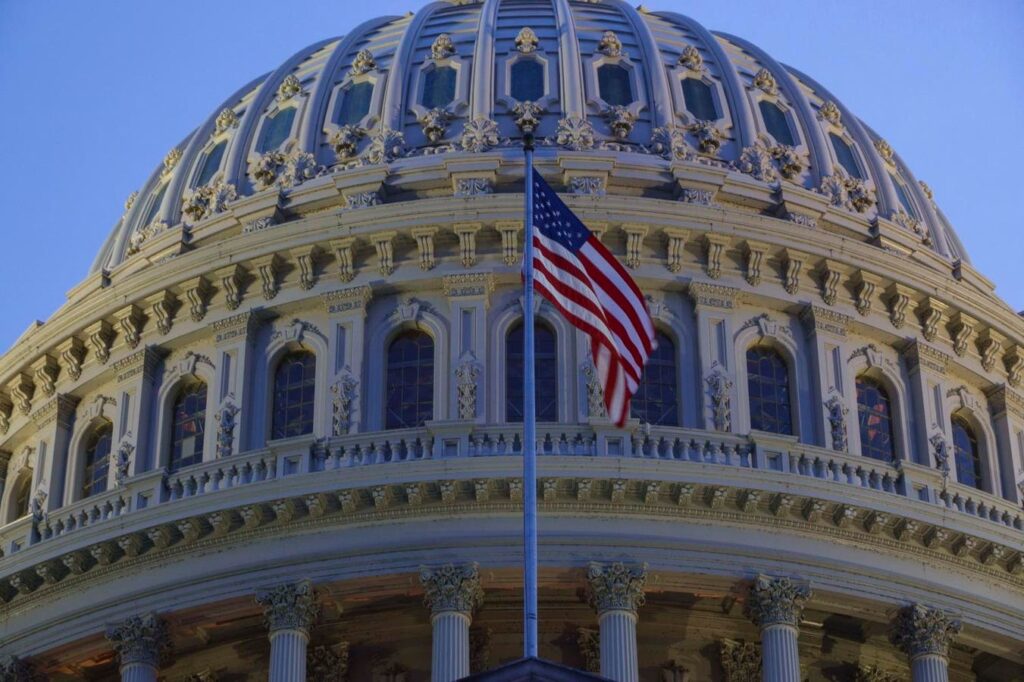As expected, the House of Representatives voted in favor of a bill to rescind $9.4 billion in funding for National Public Radio (NPR), the Public Broadcasting Service (PBS), and the United States Agency for International Development (USAID). The bill, proposed by President Trump, does not focus on approving new dollars, but instead targets a clawback of previously approved funds, a move known as rescission.
Just before the vote, Trump posted (in part) on Truth Social:
The House of Representatives is NOW voting on my Administration’s first “Rescissions” Bill. It will OFFICALLY “claw back” $9.4 BILLION DOLLARS in funding for wasteful Foreign Aid, used for Radical “DEI” and the Green New SCAM, and the “Corporation for Public Broadcasting,” which funds the highly biased NPR and PBS. For decades, Republicans have promised to cut NPR, but have never done it, until now. NPR and PBS are a Radical Left Disaster, and 1000% against the Republican Party!
Despite the President’s message, not all Republicans voted yes on the rescission. Four GOP representatives—Mark Amodei (Nev.), Brian Fitzpatrick (Pa.), Nicole Malliotakis (N.Y.), and Mike Turner (Ohio)—voted no. That represented a shift from the vote to consider the measure, which passed earlier in the week—in that vote, Kentucky’s Thomas Massie was the sole Republican voting no (he changed his vote to yes for the Thursday vote).
The Details
Despite the name, the clawback isn’t from a single pot of money—the cuts will be made across appropriations over several fiscal years.
As approved by the House, the bill reduces pre-approved funding for the Corporation for Public Broadcasting by $535 million per year for fiscal years 2026 and 2027. Currently, PBS receives about 15% of its revenue from CPB’s federal funds, while approximately 1% of NPR’s annual operating budget comes from the CPB (that percentage is a bit higher for member stations, including those in rural stations or underserved areas).
“Unobligated” balances for certain USAID programs available under the 2024 and 2025 fiscal year appropriations are also permanently rescinded—those total approximately $8.3 billion.
For context, the U.S. government’s last fiscal year budget totaled $6.75 trillion in spending. The U.S. government has spent $4.85 trillion in fiscal year 2025, an increase of $356 billion over the same time period last year. The most significant outlays went to Social Security, followed by Medicare and interest to pay down the national debt.
Response
Following the vote, Katherine Maher, NPR President and CEO, released a statement, saying in part, “Americans who rely on local, independent stations serving communities across America, especially in rural and underserved regions, will suffer the immediate consequences of this vote. If rescission passes and local stations go dark, millions of Americans will no longer have access to locally owned, independent, nonprofit media and will bear the risk of living in a news desert, missing their emergency alerts, and hearing silence where classical, jazz and local artists currently play.”
The bill now moves to the Senate, where its future is uncertain. Republicans hold a narrow majority, but some Senators have expressed reluctance to pass the retroactive cuts. PBS has urged the Senate not to pass the bill, saying in a statement, “The fight to protect public media does not end with this vote, and we will continue to make the case for our essential service in the days and weeks to come. If these cuts are finalized by the Senate, it will have a devastating impact on PBS and local member stations, particularly smaller and rural stations that rely on federal funding for a larger portion of their budgets. Without PBS and local member stations, Americans will lose unique local programming and emergency services in times of crisis.”
White House officials have signaled that they want to send more cuts, but it’s unclear what the appetite might be for continuing to undo the work of an earlier Congress. One option that could be considered? A pocket rescission. While a rescission requires an affirmative vote of Congress to claw back funds, a pocket rescission issued within 45 days of the end of the fiscal year allows for a rescission if Congress simply fails to act. The government’s fiscal year ends on September 30, which means that the window for such a move opens in mid-August.
Read the full article here

